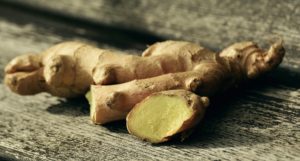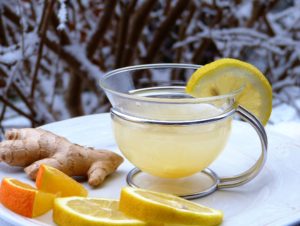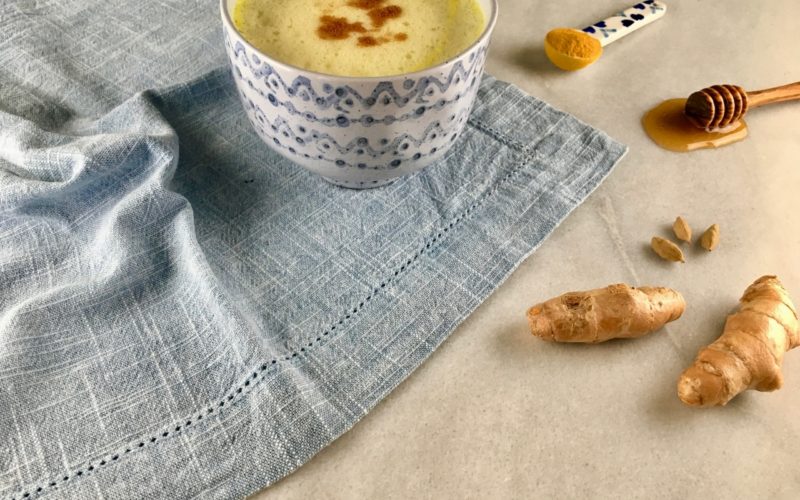The combination of kratom and ginger is great for alleviating some side effects of kratom, such as nausea or constipation. In this article, you’ll learn the benefits of mixing these natural products.
Kratom Properties
Kratom is the common name of Mitragyna speciosa, a tree in the Rubiaceae family (the same as coffee). The leaves of the kratom tree contain potent alkaloids (especially mitragynine and 7-OHM) that act on the mu and delta receptors in your brain. When kratom’s alkaloids bind to these receptors, they can bring about a wide range of effects, such as:
- Pain relief
- Anxiety relief
- Relaxation
- Euphoria
- Energy booster
- Memory and focus improvement
Thanks to these effects, people use kratom for many ailments and conditions, such as chronic pain, anxiety, depression, insomnia, fatigue, or to improve memory and concentration. It is also a great ally to fight the symptoms of opiate withdrawal.
Kratom Side Effects
Although kratom is very helpful for many conditions, it also has side effects. In most cases, these side effects are the result of inappropriate doses (that is, doses that are too high). Kratom side effects include:
- Nausea
- Constipation
- Dizziness
- Headache
- Eye wobbles
- Low libido
Generally speaking, the best way to avoid these side effects is by being cautious with the dosage. However, in some cases reducing your kratom dosage is not enough to prevent kratom side effects. Ginger can help you avoid and alleviate some of these side effects, especially kratom nausea.
Ginger Properties
Native to South Asia, ginger (Zingiber officinale) has become one of the most popular natural products in the world. Nowadays, ginger root is a common ingredient that you can find in almost any kitchen. But ginger also has plenty of health benefits and has been part of the traditional medicine for centuries. In some cases, the properties of ginger can help relieve the side effects of kratom. These are the main effects of ginger:
- Has analgesic and anti-inflammatory properties
- Can prevent and alleviate nausea
- Boosts your libido
- Is a mild laxative
- Can help lower blood pressure
- Helps prevent cancer and has anti-tumor activity
- Is a potent antioxidant
- Has energizing effects
- Helps prevent Alzheimer’s Disease and improve brain function
- Is anti-bacterial and boosts your immune system
As you can imagine, ginger can help you relieve nausea, constipation, and loss of libido due to kratom. Furthermore, ginger is also a good pain reliever and will give you an energy boost. That’s why, when you mix kratom and ginger you’ll find that the analgesic and energizing effects are more potent.

Benefits of Mixing Kratom and Ginger
Ginger can help you prevent and alleviate kratom nausea. This is the main reason why so many kratom users combine kratom and ginger. But ginger also has mild laxative effects. Constipation is a very common kratom side effect that most kratom users experience. In order to avoid it, it is very important to keep a healthy diet that includes high-fiber foods and take fiber supplements or a mild laxative as soon as the first symptoms start. Consuming ginger can help you fight kratom constipation.
Some people claim that their libido has decreased with the use of kratom. Ginger can help you boost your libido naturally as it promotes blood flow and circulation to the sexual organs.
But there’s more to it: you’ll feel the analgesic and energizing effects of kratom are enhanced when taking kratom and ginger. This happens because ginger is also a natural pain reliever and stimulant. In fact, ginger is very helpful in relieving joint pain thanks to its anti-inflammatory properties. That’s why ginger is very helpful for arthritis or fibromyalgia.
How to Take Kratom and Ginger
You can add fresh ginger or ginger powder (like a ginger tea bag) to your kratom tea. This will also help you cover kratom bitter taste that so many users find unpleasant. You can read a nice kratom and ginger recipe here. Other users take ginger after ingesting kratom, as soon as nausea begins.
Making a ginger tea is the most common way of consuming ginger. Yet, there are users who don’t like the taste or prefer an easier way of consumption. For those users, ginger capsules are the best choice.
But you can also find ginger gummies and, of course, the popular ginger ale.

Ginger Side Effects and Interactions
Although ginger is a safe substance, it can increase your insulin levels and lower your blood sugar. Due to this, if you are suffering from diabetes you should talk to your doctors before consuming ginger.
On the other hand, people who are taking anticoagulants or antiplatelets should be very cautious when using ginger. Ginger can also slow blood clotting, which is what this type of medication does. The combination of ginger and medications that slow blood clotting could result in bleeding or bruising.
Is Ginger a Kratom Potentiator?
While there are studies that suggest that ginger could potentiate the effects of morphine and prevent morphine tolerance, this doesn’t mean that ginger is a kratom potentiator, nor that it helps fight kratom tolerance. On the one hand, the studies are focused solely on morphine, which is different from kratom. On the other, there very few studies on this subject.
Some kratom users claim that by combining kratom and ginger the effects of kratom are more potent. Nonetheless, this could be due to the similar effects that kratom and ginger have in common (such as analgesic or energizing effects). But this also means that if you combine kratom and ginger you may need lower doses of kratom to achieve the desired effects. Reducing your kratom dosage can be very useful for avoiding kratom tolerance and kratom side effects.


